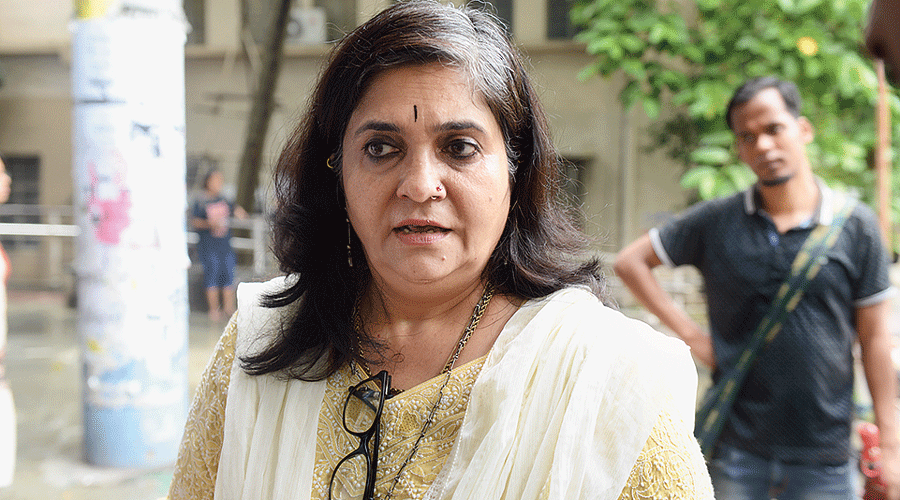The Supreme Court on Monday issued a notice to the Gujarat government on social activist Teesta Setalvad’s bail plea, giving the state two days to reply, and posted the next hearing to Thursday.
A state government is usually given a fortnight to respond to such a notice.
The apex court’s directive comes amid widespread criticism of Setalvad’s detention in India and overseas, and a plea to the Supreme Court from renowned academics, including Noam Chomsky and Bhikhu Parekh, to dismiss the case against her.
Gujarat police had arrested Setalvad on June 25 on the charge of fabricating evidence to frame innocent people in the 2002 riots, citing certain remarks made by an apex court bench the previous day.
On June 24, the apex court had upheld a special investigation team’s (SIT) clean chit to Narendra Modi.
Modi was Gujarat chief minister when the 2002 riots took place. The Supreme Court had said in June that those who had knowingly made false allegations in the case “need to be in the dock”. Setalvad had been a co-petitioner against the SIT’s findings.
On Monday, the bench of Justices U.U. Lalit, S. Ravindra Bhat and Sudhanshu Dhulia issued the notice after senior advocate Kapil Sibal, appearing for Setalvad, complained about delay on the part of Gujarat High Court in hearing her bail plea.
Sibal underlined that the high court, which had issued a notice on Setalvad’s bail plea to the state government on August 3, had scheduled the hearing as late as September 19.
He said Setalvad’s prolonged detention ran counter to the apex court’s repeated assertions that “bail is a right and jail an exception”.
The court asked whether anyone was representing the Gujarat government in the matter. Receiving no response, it issued the notice.
In her special leave petition filed through advocate Aparna Bhat, Setalvad has challenged an Ahmedabad sessions court’s July 30 order rejecting her bail plea, and the high court’s August 3 order listing her plea for September 19.
Her petition cites several apex court judgments, including a 2020 order granting bail to TV anchor Arnab Goswami in a suicide abetment case.
“The need to ensure the fair investigation of crime is undoubtedly important in itself… on the other hand, the misuse of the criminal law is a matter of which the high court and the lower courts in this country must be alive,” the order had said.
Setalvad’s plea also referred to a July 2022 apex court judgment in Satender Kumar Antil vs CBI that said the courts must adhere to timelines for the grant of bail as directed in Hussain vs Union of India in 2017.
“The high courts are requested to ensure that bail applications filed before them are decided as far as possible within one month,” that 2017 judgment said.
Setalvad has argued that the Gujarat government has targeted her because she had challenged the administration “in its action and inaction relating to communal violence”.
“(She) has supported a large number of victims in accessing legal services at multiple levels, including this hon’ble court. Her persistent efforts have led to many convictions in the large-scale murders that had taken place in the state of Gujarat in 2002,” the petition says.
Judge’s query
At the outset on Monday, Justice Lalit, the Chief Justice of India-designate, asked whether anyone had any objections to his hearing the case since he had earlier, as a senior advocate, represented some of the accused in the Sohrabuddin case.
Several Gujarat police officers were accused in the murder of Sohrabuddin, an alleged gangster, in 2005 – a case in which the then Modi-led Gujarat government was in the dock, as it was in the case that has led to Setalvad’s arrest.
“Before you begin, there’s one thing: I had represented a few accused in the Sohrabuddin murder matter. I must inform you that…. Not sure this matter has anything to do with it,” Justice Lalit said.
Sibal said: “As far as we are concerned, there’s no problem.”











